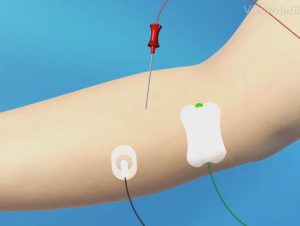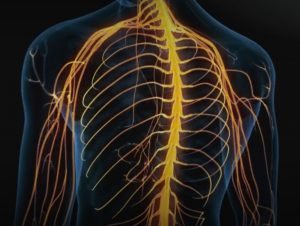What is the purpose of Electrodiagnostic Testing
Electrodiagnostic testing is used to evaluate the electrical function of muscles and nerves. It is commonly ordered to assess the peripheral nervous system.
 Why would I need Electrodiagnostic Testing?
Why would I need Electrodiagnostic Testing?
Symptoms that may require testing include: tingling, numbness, weakness and burning. Your doctor may order the testing to check for common issues such as carpal tunnel syndrome, pinched nerves in the arms or legs, or a radiculopathy (pinched nerve in the neck or back).
Can you tell me about the test?
There are two parts of the testing. The first part of testing is the nerve conduction study (NCS). During this part of the exam, small electrical impulses will stimulate the nerves to fire. The size and speed of the responses will be evaluated and compared with normal values. The second part is the electromyogram (EMG). During this part of the exam, small wires will be inserted in specific muscles to check the normal function of the muscles.
Does the test hurt?
The test is mildly uncomfortable with most patients indicating it feels “annoying”. Most discomfort if any is temporary. The NCS feels like static electricity and the EMG feels like a thin wire being placed in the skin. You may return to normal activities immediately after the test.
How do I prepare for the test?
We ask the patient to avoid applying lotions, creams or soap to the area that will be tested on the day of the exam. If you are having your arms tested, we ask you to wear a short sleeve shirt. If you are having your legs tested we ask you to wear shorts or bring some with you to change into. Please do not smoke for 3 hours prior to the test.
Why choose Dr. Dauber for your Electrodiagnostic Testing?
• Board certified Physical Medicine and Rehabilitation physician with extensive training in techniques and interpretation of EMG/NCS
• More than 10, 000 tests performed
• Study performed in the office—conveniently located in Plano
• Patients given results at the time of examination
• Reports sent directly to referring physician
• Insurance verified prior to testing
• Treatment options available based on test results (if requested by ordering physician)

